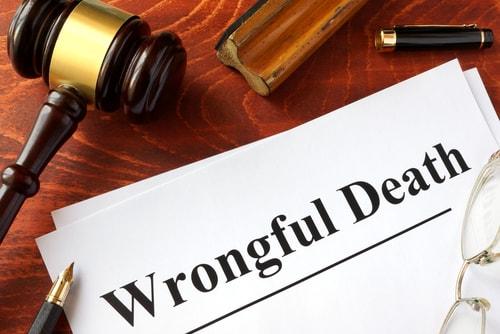What Are the Requirements for Filing an Illinois Wrongful Death Claim?
 Accidents of any type can result in serious injuries, but in some cases, they can also cause the wrongful death of the victim. The loss of a beloved relative can traumatize a family for years. It can be difficult to accept his or her untimely demise at the hands of another person. This can be especially true if the incident was preventable and was caused by a negligent party’s wrongdoing.
Accidents of any type can result in serious injuries, but in some cases, they can also cause the wrongful death of the victim. The loss of a beloved relative can traumatize a family for years. It can be difficult to accept his or her untimely demise at the hands of another person. This can be especially true if the incident was preventable and was caused by a negligent party’s wrongdoing.
In certain situations, such as a homicide, the death may have been caused intentionally. Regardless of whether the death was the result of a motor vehicle accident or medical malpractice, the deceased person’s surviving spouse and next of kin may be entitled to monetary compensation. In some cases, this may be particularly important if the victim was the sole provider of the family’s income. It is important to know what constitutes wrongful death and how to seek damages for this type of tragedy.
Illinois Wrongful Death Act
The Illinois Wrongful Death Act specifically defines “wrongful death” of a victim and various aspects of filing a claim, such as:
- Who is eligible to receive financial compensation for the wrongful death of a loved one
- The circumstances that constitute a “wrongful death”
- The amount and types of compensation available
This type of civil case is sometimes filed in the wake of a criminal trial. It is imperative to note that an individual must file a wrongful death lawsuit within two years of the death of his or her relative. However, if the death was the result of a criminal act of violence, an action against the perpetrator must be filed within one year after the final disposition in a criminal case or within five years of the death if no criminal case proceeds.
According to Illinois law, the following people are eligible to file a wrongful death lawsuit:
- The surviving spouse of the deceased
- Children of the deceased
- Family members (including adult children of the deceased or the parents of a deceased minor child)
- Personal representative (if the deceased did not have an appointed representative)
What Is Contributory Fault?
The issue of contributory fault also plays a role in wrongful death claims. If the deceased person is found to be more than 50 percent at fault for the accident, damages will not be awarded. If it is determined that the deceased individual was at fault by a lesser percentage, the compensation amount will be reduced proportionately. Similarly, if a beneficiary of the lawsuit is found to be partially at fault for the cause of death, that person’s portion of the award will be lowered.
In cases where the deceased individual has no surviving spouse or next of kin entitled to compensation, the damages may go to the following persons, subject to limitations:
- The person(s) providing hospitalization or hospital services related to the last illness or injury of the deceased person, not exceeding $450
- The person(s) providing medical or surgical services related to the last illness or injury of the deceased individual, not exceeding $450
- The personal representatives for the expenses of administering the estate and prosecuting the action; the damages shall be the reasonable value of hospitalization, medical and surgical services, funeral expenses, not exceeding $900 plus a reasonable attorney’s fee.
Contact a Joliet Personal Injury Attorney
Losing a loved one is devastating, especially if it was due to the negligent or intentional actions of another person. Although money will not bring back your family member, it can help make up for lost wages or pay for medical bills if the victim was hospitalized for an extended period of time. At McNamara Phelan McSteen, LLC, our compassionate Will County wrongful death attorneys understand the importance of seeking compensation for your pain and suffering. We will assist you in completing all of the necessary legal steps for filing a wrongful death claim. To schedule a free consultation, call our office today at 815-727-0100.
Source:
http://www.ilga.gov/legislation/ilcs/ilcs3.asp?ActID=2059&ChapterID=57
 815-727-0100
815-727-0100













